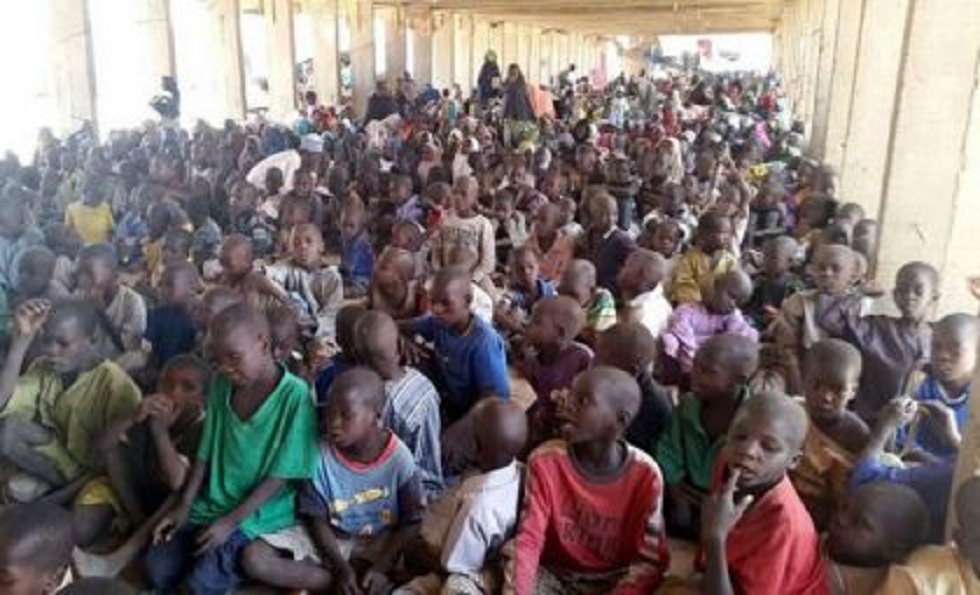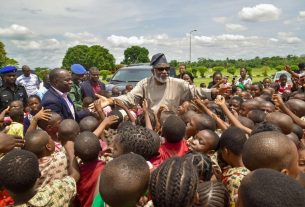The Federal Government has secured a $25.35 million concessionary loan from the Kuwait Fund for Arab Economic Development to support a major initiative aimed at reducing the number of out-of-school children in Kaduna State.
The facility, signed on behalf of the Kaduna State Government, forms part of a broader $62.8m blended financing package with international development partners designed to expand access to quality and inclusive education in one of the country’s most affected regions.
In a statement issued on Tuesday by the Director of Information and Public Relations at the Federal Ministry of Finance, Mohammed Manga, the loan is expected to finance the Reaching Out-of-School Children programme, a large-scale intervention targeting vulnerable populations, including girls, children with disabilities, and internally displaced persons.
The statement read, “In a significant step towards improving access to quality education in Nigeria, the Federal Government and the Kuwait Fund for Arab Economic Development have partnered to support the Reaching Out-of-School Children programme in Kaduna State.
“This partnership is built on a $25.35m concessionary loan agreement signed today between the Federal Government of Nigeria, on behalf of Kaduna State and the Kuwait Fund for Arab Economic Development.
“The facility forms part of a wider $62.8m blended package with international partners that will expand access to quality, inclusive education and improve learning outcomes for some of Nigeria’s most vulnerable children.”
The programme is set to enrol over 100,000 children, construct or upgrade more than 200 schools, and improve both the learning environment and the capacity of teachers in underserved areas across the state.
The Minister of Finance and Coordinating Minister of the Economy, Mr Wale Edun, who was represented at the signing by the Minister of State for Finance, Dr Doris Uzoka-Anite, said the programme highlights the government’s commitment to transparency, accountability, and measurable outcomes in social sector investments.
He noted that with millions of children still out of school, particularly in northern Nigeria, each dollar of intervention must translate into real and visible progress.
He also commended Kaduna State for its proactive leadership and strong engagement with partners, expressing confidence that the initiative could serve as a model for replication across other states.
According to the statement, Kaduna State Governor, Uba Sani, reaffirmed the state’s prioritisation of education, disclosing that Kaduna had already fulfilled its counterpart funding commitment of $1m.
He said the state had increased the education sector’s share of the 2025 budget to 26 per cent, as part of a broader commitment to human capital development.
Under the framework of the new programme, 102 new climate-resilient schools will be built while 170 existing schools and learning centres will be rehabilitated, with particular emphasis on marginalised groups and hard-to-reach communities.
The Director-General of the Kuwait Fund, Dr Wahid Al-Bahar, described the project as an investment in hope, noting that its goals extend beyond infrastructure.
He said the fund was proud to support an initiative that aims to guarantee access to learning for every child, stressing that success would be judged by improved enrolment, stronger learning outcomes, and community engagement.
The other partners in the financing structure include the Islamic Development Bank, which is contributing a $10.5m loan; the Global Partnership for Education, offering a $15.45m grant; the Education Above All Foundation, with a $10m grant; and Save the Children International, which is providing $0.5m in technical assistance. Kaduna State’s contribution stands at $1m.
The Federal Ministry of Finance is expected to oversee the programme’s fiduciary processes and coordinate results reporting in collaboration with the state and partner organisations.
This will involve routine joint assessments covering enrolment rates, teacher training metrics, and academic performance indicators to ensure the programme delivers measurable and sustainable impact.
The Punch





